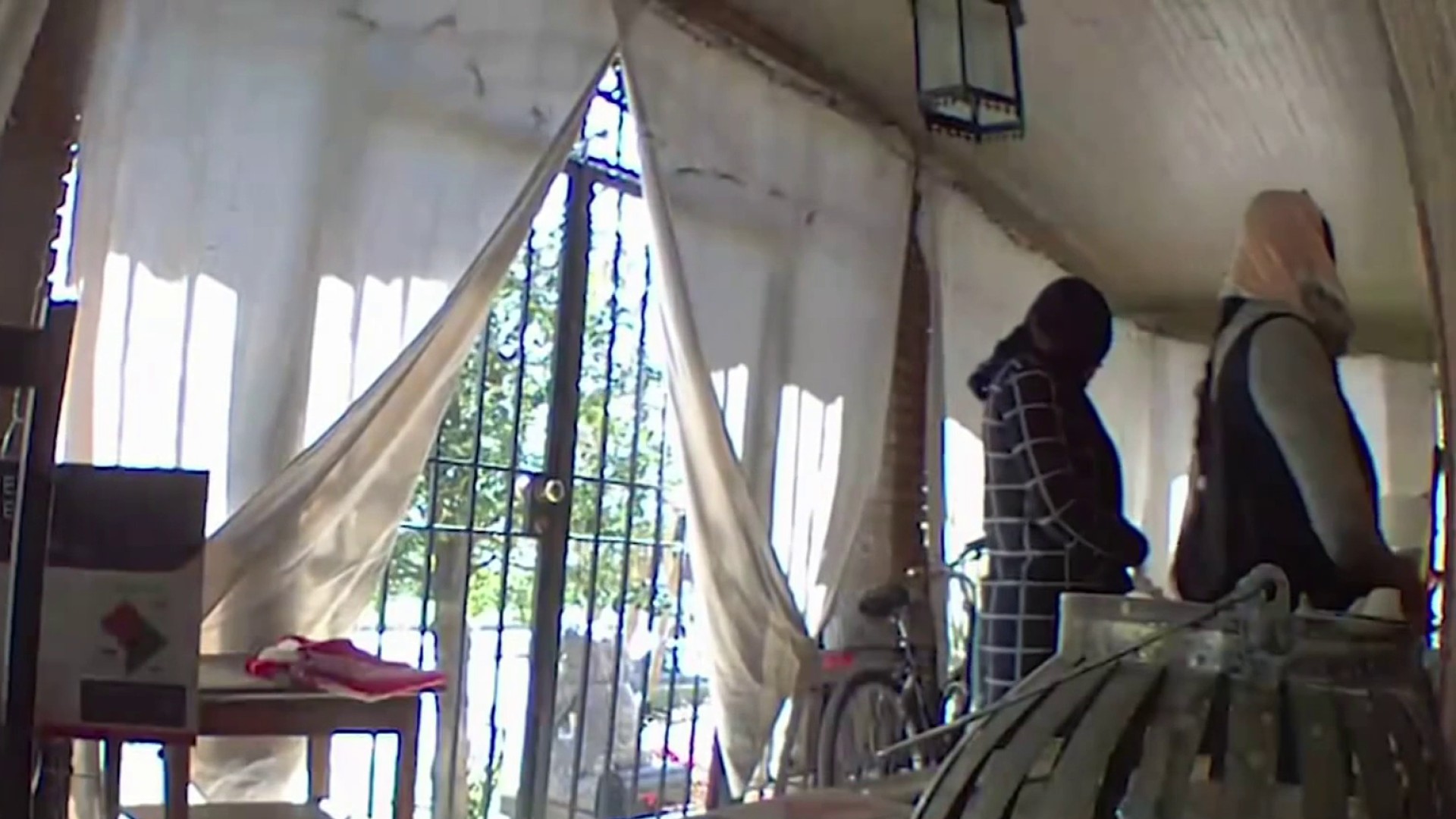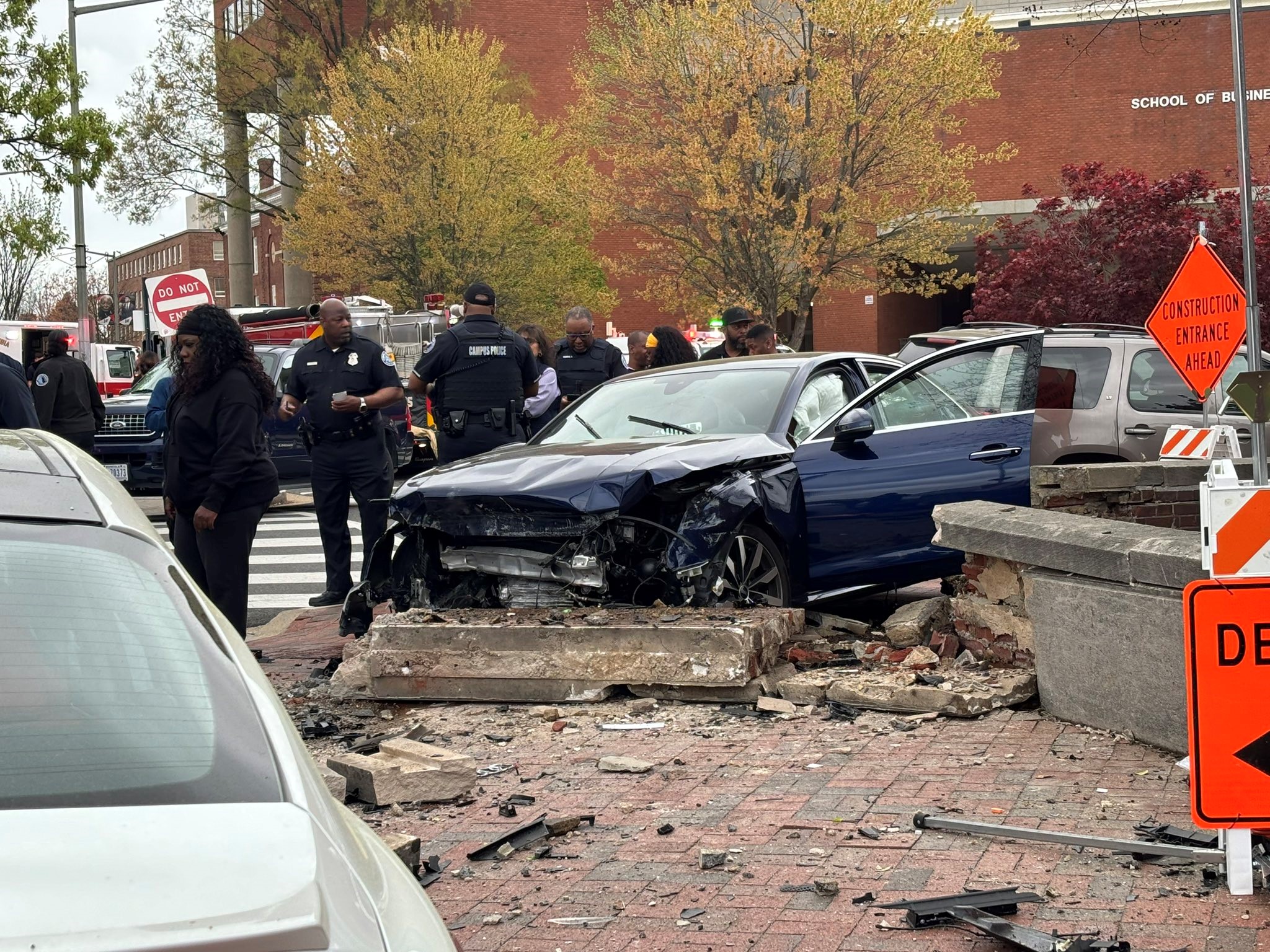Dozens of mourners gathered at a Southeast church Friday evening, praising their "Mayor for Life" for better their lives from a young age.
The 2-hour ceremony at Temple of Praise church capped an hours-long procession for Barry, a controversial but loved figure in D.C. politics for decades.
"They thought his political life was all over. As a matter of fact, it had just begun," Bishop Glen A. Staples said, delivering the eulogy.
The Rev. Zina C. Pierre officiated to a spirited crowd that openly expressed its love for Barry.
"Anyone ever had an internship? Anyone ever started a business? Anyone ever had childcare services and vouchers? Had your rent paid? Well come on and give God some praise for Marion S. Barry!" Pierre said.
A third-generation Washingtonian, Delia Davis-Dyke, like many of the other mourners, said she got her first summer job as a youth thanks to Barry.
"Whatever happened in his personal life, he's always been committed to this city," she said. "I work in a Ward 8 school. As a council member, he's been very committed to ensuring my students are taken care of and not forgotten."
Local
Washington, D.C., Maryland and Virginia local news, events and information
"Marion Barry, you gave us your best. We say thank you, and farewell," ANC Commissioner Mary Cuthbert said.
The Rev. Al Sharpton was supposed to speak, but was not in attendance during the 2-hour ceremony, which concluded just after 9 p.m.
That morning, the procession left the Wilson Building at 9:30 a.m., traveling through downtown and into Ward 8, the section of the District where Barry lived. Barry also represented that portion of the city on the D.C. Council.
As the procession approached the Big Chair sculpture in Ward 8, residents lining the sidewalks along Martin Luther King Jr. Avenue chanted Barry's name and swarmed around the hearse carrying his body.
Barry's widow, Cora Masters Barry, and their son, Christopher, got out of their SUV and greeted residents with handshakes and hugs. Masters Barry said she wanted to hear from and feel the people, News4's Mark Segraves reported.
At Ballou High School, students chanted "Ward 8," and the drumline of the school's marching band joined the procession. Barry's casket was transferred to a horse-drawn caisson at United Medical Center for the last leg of the procession to Temple of Praise.
Barry's funeral will be held Saturday at the Walter E. Washington Convention Center (Halls C&D, 801 Mount Vernon Place NW). A viewing from 7 to 10 a.m. will precede the service, which will take place from 11 a.m. to 3 p.m.
L Street NW will be closed between 7th and 9th streets from 7 a.m. to 10 a.m. Officials preparing for the service said they are expecting up to 15,000 mourners.
A private burial will follow at historic Congressional Cemetery on Capitol Hill, which Barry picked himself. The cemetery has been told to expect about 150 people and has posted signs that the grounds will be closed to the public most of the day Saturday.
Longtime FBI Director J. Edgar Hoover, composer John Philip Sousa and Civil War photographer Matthew Brady are among the famous people buried at Congressional.
The city's memorial events for Barry began Thursday when his casket was brought to the Wilson Building to lie in repose. Family members, politicians and the public filed by the casket for the next 24 hours to pay their respects to the "Mayor for Life."
PHOTOS: Memorial Events for Marion Barry
Barry died Nov. 23 at age 78. He served four terms as mayor and three terms as a city council member. But along with that huge political success, many personal failures marked his turbulent life.
He confounded critics who railed against his melodramatic life, even as he basked in the admiration of forgiving citizens who looked to him as their champion. Early on in his career, the Washington City Paper dubbed him "Mayor for Life."
The son of a Mississippi sharecropper, Barry emerged from the student and civil rights activism of the 1960s to serve on the elected D.C. school board and D.C. Council.
In 1979, Barry began serving the first of three consecutive terms as D.C.’s second elected mayor. His pro-business policies helped spur economic development. He built civic programs for youth and senior citizens, and opened the city government to many African-American professionals, who previously had been shut out.
But lackluster city services, like slow snow removal and lost city ambulances, dogged Barry's administration. He battled a soaring homicide rate among the worst in the nation, and vowed a war on illegal drugs even as rumors about his own drug addiction swirled around Washington.
Barry's stature crumbled spectacularly in 1990, when an FBI sting videotaped Barry smoking crack cocaine in Washington’s Vista Hotel.
Barry famously complained that he had been set up by former girlfriend Rasheeda Moore, an FBI informant.
Barry’s federal trial turned into a drama of prosecution charges and persecution complaints. Out of 14 drug charges, a jury convicted Barry of a single misdemeanor possession charge. U.S. District Court Judge Thomas Penfield Jackson sentenced him to six months in prison, the maximum punishment.
Many thought the scandal would finish Barry's political career.
But in 1992, Barry emerged from prison and began his comeback right at the prison gate. Just months later he won the Ward 8 council seat from longtime ally and four-term incumbent Wilhelmina Rolark.
In 1994, he swept back into the mayor’s office for a fourth term, trouncing failed reform Mayor Sharon Pratt Kelly. Congress reacted sharply to concerns over another term for Barry and Kelly’s massive debt by creating a five-member federal control board to run the city over Barry.
Barry appointed then-obscure Anthony Williams as his chief financial officer. Acerbic and shy compared to Barry, Williams won the mayor’s office in 1998 when Barry chose not to seek re-election.
Barry returned to the political limelight in 2004, winning Ward 8 over another former ally, Sandy Allen. Waving off criticism of disloyalty, Barry said it wasn’t personal — it was politics.
In recent years, Barry easily won re-election in Ward 8. But he suffered from declining health, and received a kidney transplant.
Other controversies endured: failing to file income taxes, being censured for steering a city contract to a girlfriend, and making insensitive remarks about Asian storeowners and Filipina nurses, to whom he later apologized after stinging public criticism.
But of the six mayors who’ve served the city since home rule began in the 1970s, it was Barry’s Mayor for Life personality and rollercoaster career that helped define D.C. politics for decades.
Barry first came to D.C. with the Student Nonviolent Coordinating Committee. He later helped establish and run Pride, an inner-city help group. When Congress granted limited home rule to D.C., Barry won a first seat on the D.C. Council in 1974.
Shot in the chest by Hanafi Muslims when they overran at the Wilson Building in 1977, Barry used the publicity to help launch his 1978 campaign for mayor. He was a brash reformer, equally eloquent on the streets and in boardrooms. He narrowly won a three-way battle after The Washington Post editorial page heavily and repeatedly endorsed him.
But his terms in office were marred by investigations into cronyism, those drug abuse allegations and his image as a self-professed night owl.
Despite his faults, Barry is also credited with creating a massive summer jobs program that, while wasteful in many cases, offered a job or paid internship to any city youth who wanted one; and for treating senior citizens as a top priority with homes and programs for those in the twilight of life.
He completed the city’s first convention center on time and on budget. In his last term as mayor, Barry landed the deal to get the MCI Center (now the Verizon Center) built downtown.
Still, his national reputation is one of a promising politician undone or diminished by his personal failings; a politician who rose against seemingly hopeless odds to win and stay in the life of politics, often in spite of himself.



